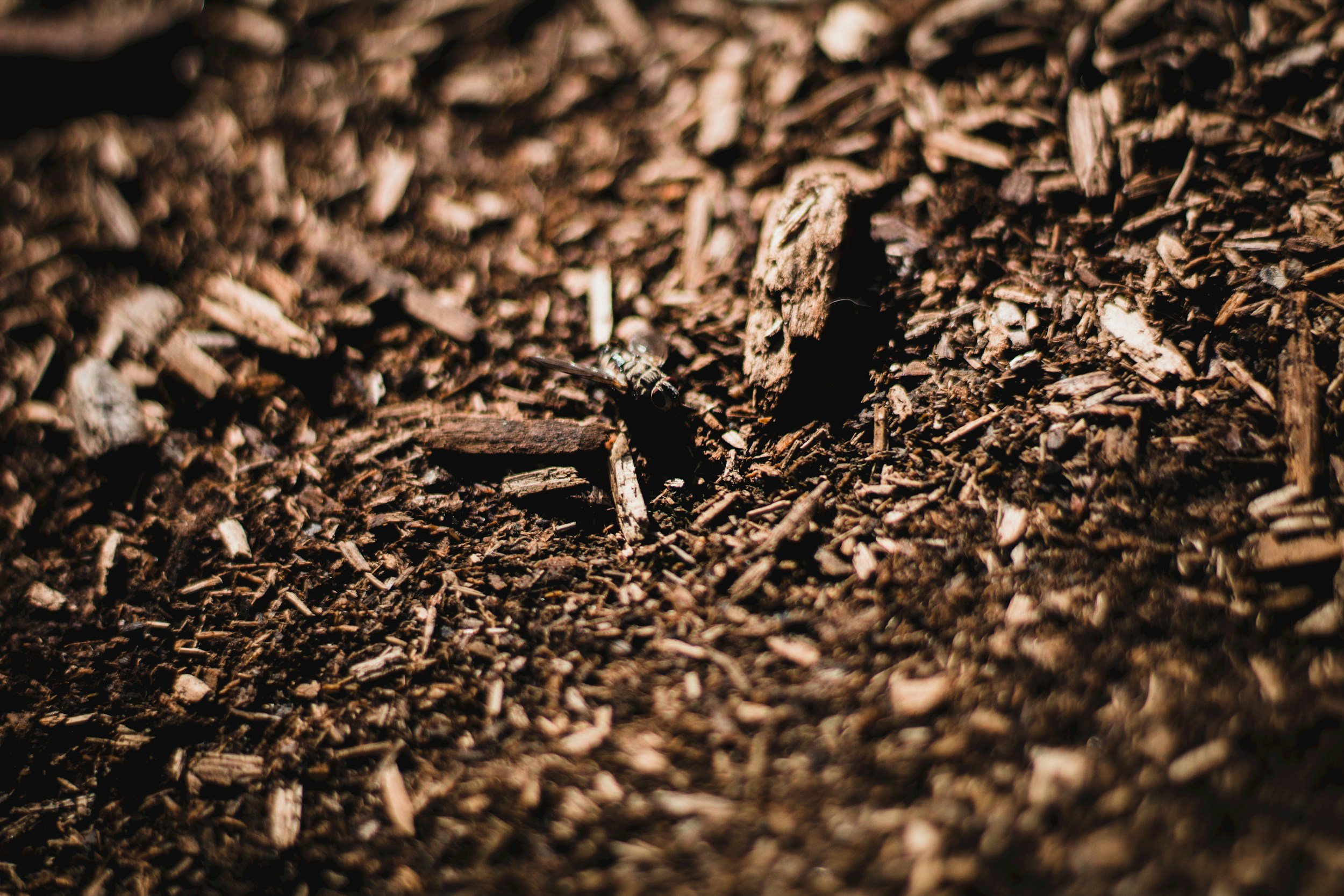What is mulch
Mulch is a material that is spread over the surface of a border or bed a covering. Different mulches have different properties depending on what they are made of.
It is a very useful thing. It can prevent water loss, suppress weeds, keep the soil cool, prevent frost damage and create an attractive finish to your bed or border. Organic mulches will also decompose and have the same effect as a slow acting compost.

When is the best time to mulch your borders?
If you are thinking about mulching you generally should do it either in the Autumn or mid to late Spring. It’s also a good idea to put mulch around any newly planted area.
Different Types of Mulch
Mulch can be divided into two different categories of mulch. There is either organic or inorganic mulch.
Organic Mulch
Organic mulches are made up of organic matter such as plant material, wood and straw. They decompose slowly adding nutrients to the soil.
Green Compost
Green compost can be anything that you would find at the bottom of the compost heap and can also include well composted manure. This is probably the cheapest option and has the added benefit that as regards it also fertilises your borders.
Green compost benefits
Supresses annual weeds
Prevents water loss
Acts as a layer of insulation against frost
Provide nutrients for the plants in your borders
Green compost drawbacks
Decomposes quickly and will need reapplication
Wood and Bark Fines
The difference between the chip and fines is the size, fines being the smaller. Both are made from either wood or bark. Well composted, high quality bark fines are GardenWilds mulch of choice because of the high quality finish it provides.
Wood and bark fines benefits
Suppresses annual weeds
Prevents water loss
Acts as a layer of insulation against frost
Gives the border an attractive finish
Eventually decomposes and provides nutrients
Wood and bark fines drawbacks
Be careful with where you get the mulch from because the wood could have been treated with harmful chemical before it was chipped
Some chip can weather and become grey and unattractive
Straw or Strulch
Straw is quite often specified by garden designers because it is the only organic mulch that (if properly prepared) is completely inert. Meaning it is chemically inactive and has a neutral pH.
Straw benefits
Suppresses annual weeds
Prevents water loss
Acts as a layer of insulation against frost
Eventually decomposes and provides nutrients
Straw drawbacks
Straw has an annoying tendency to blow all over the garden in the slightest wind
Inorganic Mulch
Inorganic mulch is made up of inorganic matter and doesn’t add nutrients to the soil
Gravel or Slate
Gravel and other stone chipping can be a very attractive option and can create a specific effect. You can get gravel of pretty much any size you like and in a variety of different stone. It’s advisable to put a weed proof membrane under the gravel because after a few years you might start to see more perennial weeds popping up. If you are mulching a border that has planting in it cut an x in the membrane and plant through that. Then put the mulch on top.
Gravel and slate benefits
Good even finish
In addition to a membrane is the best at weeds suppression
Prevents water loss
Acts as a layer of insulation against frost
Don’t need to reapply
Gravel and slate drawbacks
Can be very annoying to rake fallen leaves or hedge cuttings from gravel
Gives a very specific look, probably not suitable for every border
Landscape Fabric or Plastic Sheeting
This type of mulch is only used when a bed or border is inactive, in other words nothing is growing in it. The fabric and the sheeting are designed so that weeds cannot penetrate it. I would probably only use this mulch as a short term solution.
Landscape Fabric or Plastic Sheeting benefits
In addition to a membrane is the best at weeds suppression
Prevents water loss
Acts as a layer of insulation against frost
Don’t need to reapply
Landscape Fabric or Plastic Sheeting drawbacks
It very ugly to look at
The plastic sheeting can cause anaerobic respiration if the soil isn’t aerated properly which can cause a build up of ethonal
only a short term solution